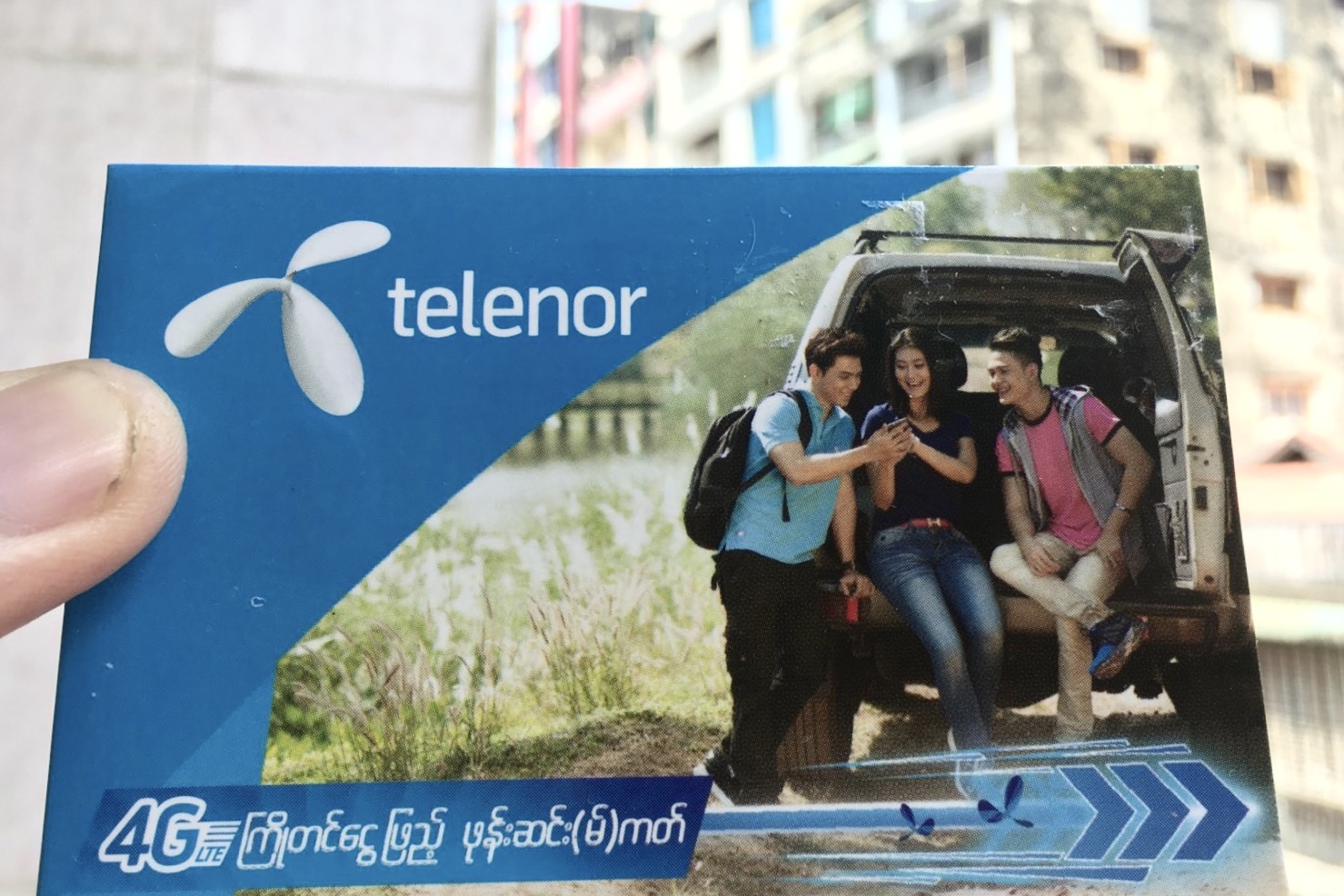
The junta’s investment commission gave regulatory approval to the sale of Norwegian telecommunication giant Telenor Group’s Myanmar operations to the Lebanese M1 Group on Tuesday, concluding the operator’s months-long and controversial country exit.
Telenor Myanmar leadership informed its staff on Friday that the final owner of the company would be Investcom, a Singapore-based joint venture set up by M1 for the purchase of the telecoms infrastructure. The local partner was formally named as Shwe Byain Phyu, a Myanmar firm with strong ties to the military.
It was explained to staff that Shwe Byain Phyu would own 80 percent of Investcom after the transaction between M1 and Telenor Myanmar had been completed. Telenor reportedly claimed to not have participated in discussions between the two entities.
The disclosure marks the first time since the sale process began that Telenor Myanmar is known to have shared information regarding its operations’ final ownership following its exit from the country.
Citing leaked documents, Myanmar Now broke the news of the partnership between M1 and Shwe Byain Phyu in early February, outlining the deal that would allow the latter to own a majority stake in the new firm.
Military authorities initially blocked the Telenor sale when M1 was the sole buyer, but the company subsequently agreed to transfer a controlling stake in the venture to a Myanmar company.
During a phone conversation with Myanmar Now last month, Shwe Byain Phyu’s chair Thein Win Zaw did not deny his company’s collaboration with M1, but declined to discuss the details, citing “pending issues.”
A source familiar with the sale process told Myanmar Now that the transfer of the company to new ownership would likely take place within five working days.
Telenor announced the sale of its Myanmar subsidiary to M1 Group in early July last year following the deteriorating situation in-country in the wake of the February military coup.
After months of processing, the Post and Telecommunications Department—the military-controlled industry regulator under the Ministry of Transport and Communications—gave Telenor the green light to sell in late February. They left the final formal approval to the Myanmar Investment Commission (MIC), which then completed the transfer paperwork.
Telenor Myanmar CEO Jon Omund Revhaug sent a message to staff on Friday confirming that the company had received regulatory approval for the sale, an employee told Myanmar Now on the condition of anonymity. The letter stated that the transaction would be “closed shortly” and that the sale was deemed to be “the most realistic alternative to keep employees safe.”
“Telenor has to leave Myanmar because local laws conflict with European laws and our values,” it said.
In early February, dozens of Telenor Myanmar employees sent a letter calling on the chair of Telenor’s board of directors, Gunn Wærsted, to “immediately intervene to terminate the sale.” The letter accused the company of a “lack of transparency with employees” concerning its exit.
One of the most controversial aspects of the sale’s completion is the imminent transfer of the data of Telenor’s more than 18 million Myanmar subscribers to M1, and by default, into the hands of Shwe Byain Phyu.
Telenor, which is majority-owned by the Norwegian government, has come under fire from international rights groups that say it has not done enough to protect the personal data of its Myanmar customers—information that is at risk of exposure to the junta through the sale of its in-country unit to military-linked entities.
The sensitive subscriber data includes the times, dates and locations of calls and text messages—information that could potentially be used by the military to target its political opponents.
Legal experts and human rights activists have also urged Telenor to protect the metadata of its customers, either by putting the sale on hold or by deleting the data before the sale.
In response to these calls, Jørgen C. Arentz Rostrup, Telenor’s executive vice president and head of its Asia operations, said last month that there were “no good alternatives” to the sale of its Myanmar operation amid mounting security issues faced by the company following the coup.
One such issue was the junta’s alleged barring of Telenor’s foreign executives from leaving the country while the regulatory process with the military authorities was still ongoing, according to Rostrup.
Myanmar Now has learnt that a Norwegian executive who was among those subjected to the ban was Hans Martin Høegh Henrichsen, chief corporate affairs officer of Telenor Myanmar.
Without naming the executive, Telenor spokesperson Cathrine Stang Lund told Myanmar Now by email on Thursday that the individual had recently been allowed to depart Myanmar after ten months of being banned from doing so.
“We are pleased by this development, and relieved that he has now been allowed to leave the country,” she told Myanmar Now.
Some critics of Telenor Myanmar’s sale, including Joseph Wilde-Ramsing, a senior researcher at the Centre for Research on Multinational Corporations, said in February that the travel ban should have been dealt with by the Norwegian government separately from the sale of the Telenor Myanmar unit.
“This is a diplomatic issue that needs to be handled at the highest levels of the Norwegian government and not something that Telenor should be playing with in the sale, using the lives and rights of 18 million Myanmar citizens as a bargaining chip,” he explained.



